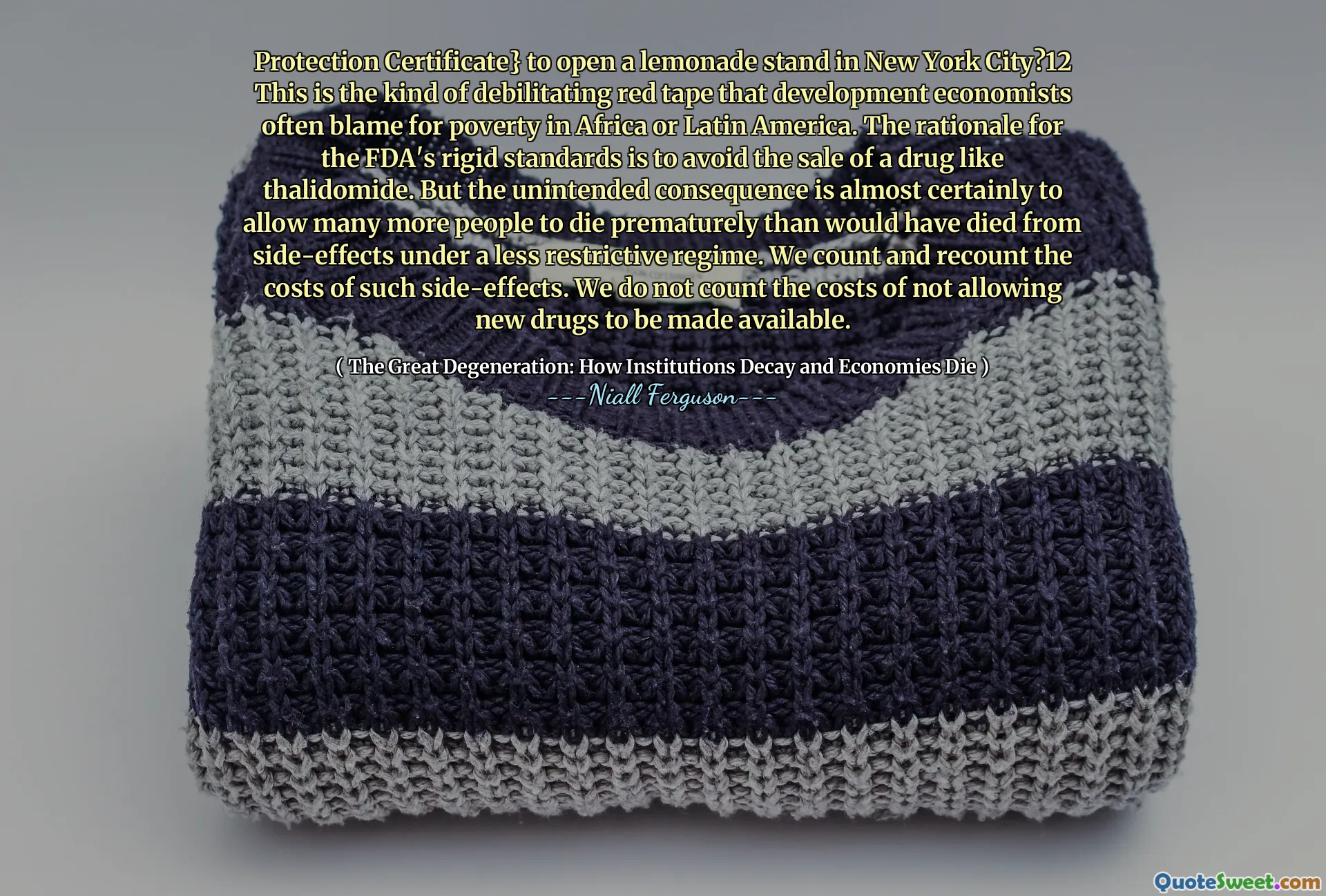
Protection Certificate} to open a lemonade stand in New York City?12 This is the kind of debilitating red tape that development economists often blame for poverty in Africa or Latin America. The rationale for the FDA's rigid standards is to avoid the sale of a drug like thalidomide. But the unintended consequence is almost certainly to allow many more people to die prematurely than would have died from side-effects under a less restrictive regime. We count and recount the costs of such side-effects. We do not count the costs of not allowing new drugs to be made available.
Niall Ferguson, in his book "The Great Degeneration," critiques the excessive bureaucracy that often hinders economic development, comparing it to the challenges of opening a lemonade stand in New York City. He points out that these regulatory obstacles are similar to barriers faced in poorer regions, which can stifle growth and innovation. The stringent standards set by the FDA, intended to prevent tragic drug failures like thalidomide, create a paradox by potentially leading to more premature deaths due to the lack of access to new treatments.
Ferguson emphasizes that while the side-effects of drugs are meticulously measured, the consequences of restricting new drugs from entering the market are often overlooked. This imbalance illustrates a critical flaw in regulatory regimes, where the costs of inaction regarding new drug availability are not adequately considered, possibly resulting in more fatalities than the dangers posed by the drugs themselves. Such rigid approaches ultimately hinder economic progress and public health advancements.











